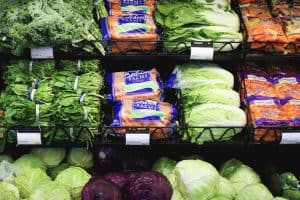*This blog is simply a documentation of my own personal accounts with meal plans. If you have any questions regarding personalized meal plans please contact nutrition@powerandgraceperformance.com
As an athlete, I battle with this question time and time again. With all my experience I still do not truly know the answer. I have worked with multiple nutritionists and dieticians in order to boost my performance and recovery time. As a result, I have been given many different approaches to my nutrition that have often left me confused and agitated. Looking back, I can sort each approach into two different categories: quality, meaning consume healthy foods as a source of energy and quantity, meaning consume many foods as a source of energy.
QUALITY

One approach that is most commonly recommended is to eat more primitive, healthier foods. Example, choosing complex carbohydrates (vegetables, whole grains, beans) versus simple and refined carbohydrates (fruit, pasta, white rice). A handful of nutritionists and dietitians have told me to eat foods like sweet potatoes, brown rice, and quinoa as opposed to white potatoes, white rice, and pasta. They also told me to avoid supplementing my protein with whey or casein and instead eat more animal-based foods as my source of protein.
QUANTITY

As I sit back and recollect both approaches, which have the same end goal—boost performance and recovery— I am left to believe neither side alone works for an athlete of such caliber. Just like any person, athletes eating healthy foods will only benefit their bodies. However, unlike an average person, an athlete needs to consume more food in order to offset energy expenditure (Kerksick et al., 2018). I believe there is a middle ground and a rather delicate balancing act athletes should consider when analyzing their nutritional needs. As athletes, we need to eat and we need to eat a lot. Likewise, we need the nutritional value healthy foods provide us for joint health and our immune system, for example. I follow the 80/20 mindset when it comes to my nutrition. If I can make up most of my diet with wholesome foods, the other twenty is not just okay but necessary for me and my success as an athlete.
Jourdan D
P&G Nutrition Intern
Resources
Kerksick et al., (2018, August 01). ISSN exercise & sports nutrition review update: Research & recommendations. Retrieved from https://doi.org/10.1186/s12970-018-0242-y
